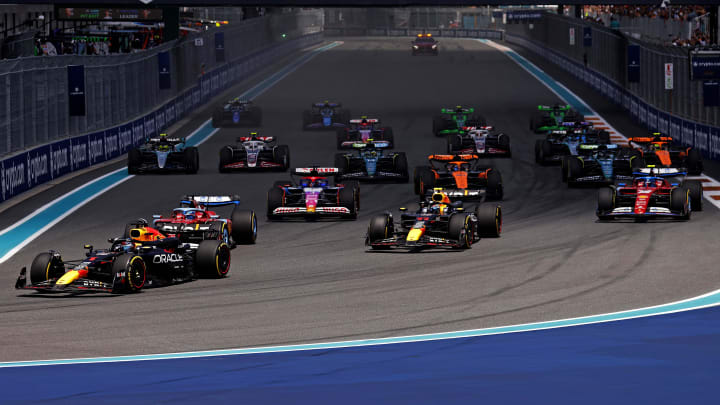F1 Commission Offers Verdict On Points System And Upcoming Weight Limit Changes

After a proposal was received to include 11th and 12th positions within the points in Formula 1, the F1 Commission rejected the idea, suggesting that no alterations would be made to the points system. In addition, the commission raised the minimum weight limit of F1 cars by 2 kilograms.
Earlier this year, discussions emerged about expanding the F1 point-scoring system to include the top 12 drivers. This proposal received a mixed reception from the current grid, with some drivers in favor and others opposed. However, after a meeting of the F1 Commission, it was agreed by all members to scrap the consideration for the 2025 season.
Currently, the sport awards points to the top 10 finishers according to the rules established in 2010. Over the years, small modifications have been made, such as allowing drivers to earn additional points through Sprint races, where the top eight finishers can score points. Another addition was the awarding of an extra point to the driver who sets the fastest lap.
In addition, the F1 Commission has raised the minimum weight limit of F1 cars by 2 kilograms, bringing the total from 798 kilograms to 800 kilograms. This adjustment, set to be implemented in 2025, which coincides with a rule change that increases the minimum driver weight from 80 kilograms to 82 kilograms. According to the FIA, this change is made 'in the interests of driver well-being'.
The rule, introduced in 2019, was implemented to ensure that smaller and lighter drivers do not have an unfair advantage. Most current F1 drivers weigh less than the 80-kilogram threshold, with the remainder compensated by ballast.
While the raised minimum weight limit of the cars may not significantly impact performance, it contradicts the ethos of the new regulations planned for 2026. These regulations aim for smaller and lighter cars to enhance overtaking and promote closer racing. It remains to be seen how this goal will be achieved by the governing body with cars that will be powered by an equal ratio of internal combustion and electric power.
